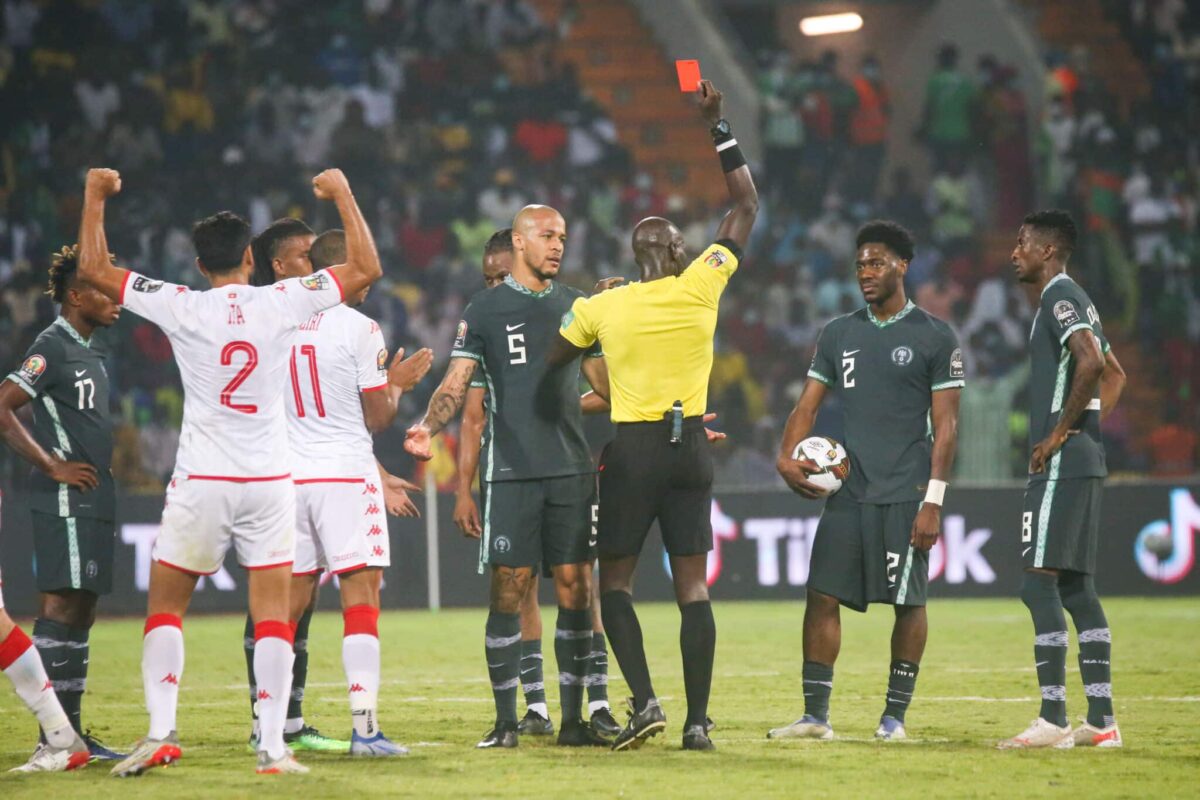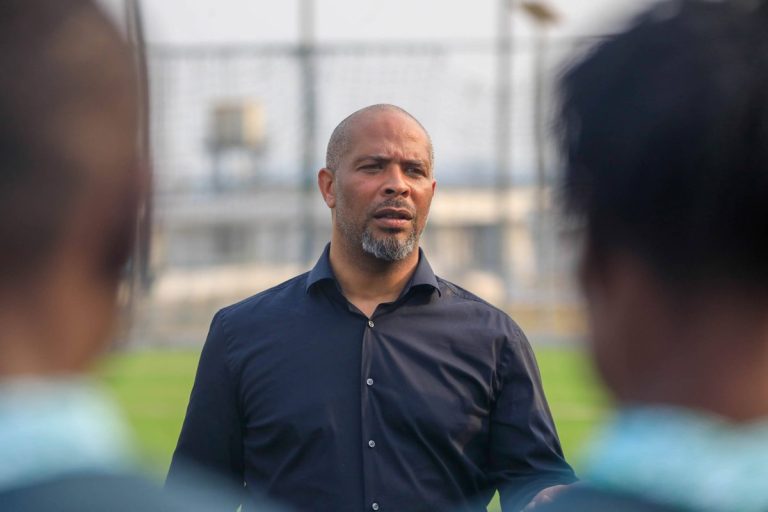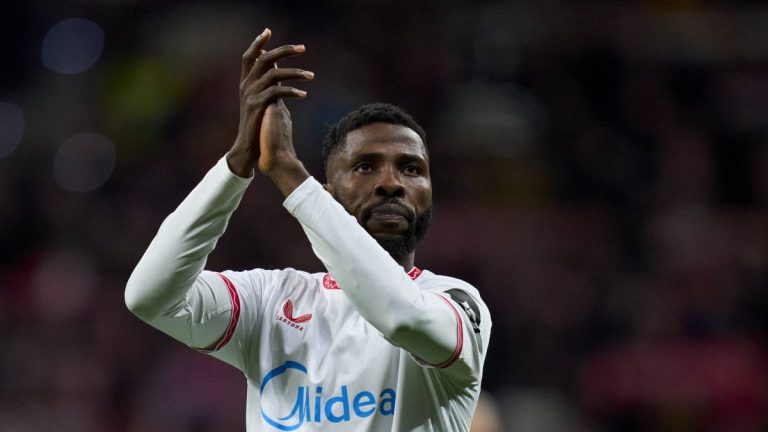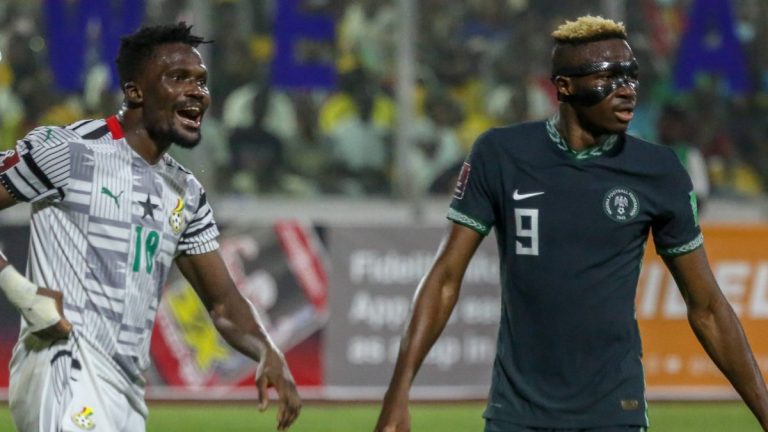The Super Eagles have suffered unjust calls from match officials in the past which cost the team in one way or the other.
Just recently, Xavi Hernandez expressed his displeasure at the centre referee in charge of the Champions League second leg quarter-final clash between Barcelona and Paris Saint-Germain on Tuesday, April 16. This reminds us that there are a fair few ways a referee's decision can change the outcome of a game.
The Catalan giants had picked up a 3-2 victory in Paris and were 1-0 up at home in the second leg, but Xavi's troops were down to 10 men just before the 30-minute mark after Ronald Araujo (last man) fouled Bradley Barcola who was clear on goal and was shown a red card.
The numerical advantage tilted the game in favour of PSG, who drew level before the break and netted three more goals in the second half to hand Barcelona a 6-4 aggregate quarter-final defeat.
Xavi Hernandez's outburst
Xavi didn't hold back shortly after PSG equalised but complained bitterly to referee Istvan Kovacs who sent him off. The expulsion, however, did not stop the Spanish gaffer who returned to the pitch at full-time to voice his displeasure again at the Romanian official.
Speaking after the game, Xavi said:
“The referee was really bad. I told him his performance was a disaster. I don't like to talk about referees, but it had a clear impact on the season and it has to be said.
“We are very upset and angry because the red card was the decisive factor in the match. With eleven we were in a good position, playing well and in command” he added.
“It's too much to flash a red card in a game like this. It is a pity that the work of the season was ruined by an unnecessary expulsion.”
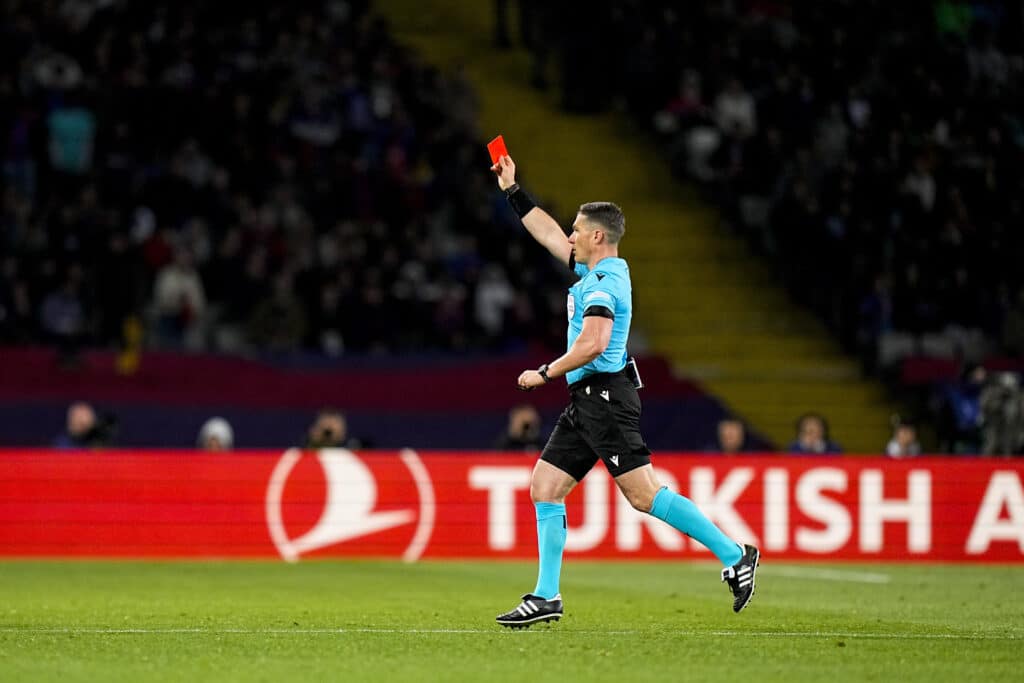
Although the decision from the Romanian referee to send Araujo off looks correct according to the laws of the game, it however adds to the never-ending controversial calls that have characterised football for many decades.
As Nigerians, we are reminded of the times the Super Eagles faced unfair treatment from match officials which caused us pain and disappointment.
Refereeing injustices suffered by the Super Eagles
In this article, we'll look at five refereeing injustices the Super Eagles have suffered in the past.
1. Argentina 1-0 Nigeria (2010 FIFA World Cup)
Nigeria squared off against Argentina in a Group B match during the 2010 FIFA World Cup in South Africa.
The Super Eagles lost the game by a lone goal in controversial circumstances because the centre referee Wolfgang Stark failed to rule out the goal scored by Gabriel Heinze in the sixth minute.
After the match, the world football governing body (FIFA) severely criticised the referee and his assistants for their decision not to penalise Argentine player Walter Samuel for obstructing a Super Eagles player in the build-up to Heinze's goal.
According to FIFA, Stark should have disallowed the goal. Nigeria went on to lose their next game against Greece, crashing out of the tournament at the end of the group stages.
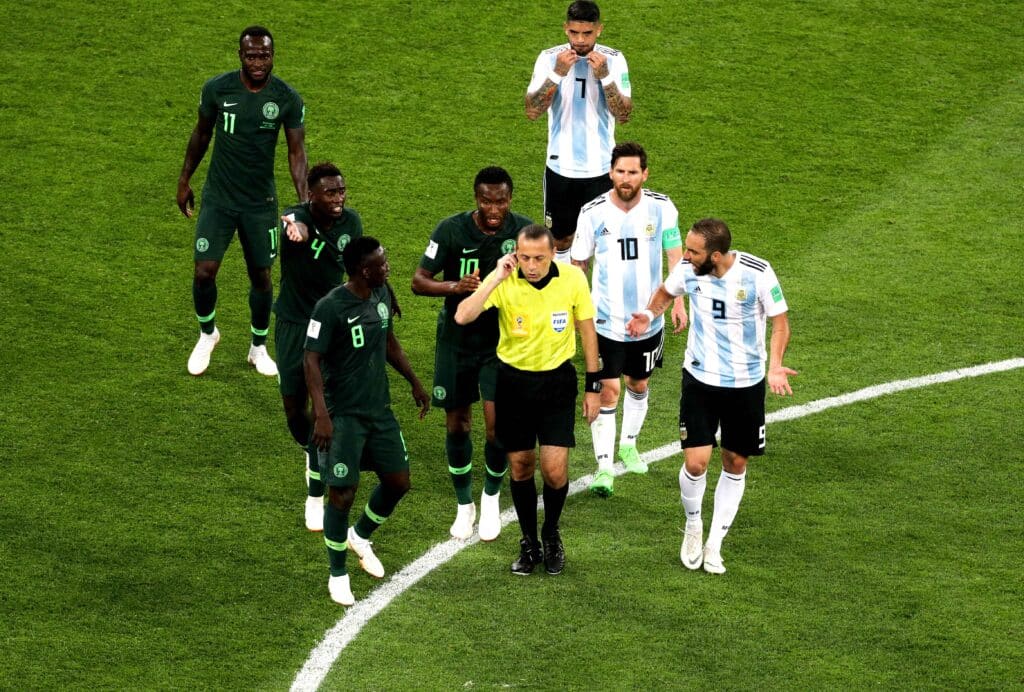
2. Nigeria 3-4 Cameroon penalty shootout loss after a 2-2 stalemate. (AFCON 2000 final)
The Indomitable Lions of Cameroon picked up their third AFCON trophy when they squared off against Nigeria in the 2000 final, a tournament that took place in Nigeria.
After a dramatic 120 minutes of football which ended 2-2 at the Surulere Stadium in Lagos, the title was decided on penalty shootouts.
Samuel Eto'o and Patrick M'boma had given Cameroon the lead but the Super Eagles were back on level terms thanks to Chukwu Ndukwe's strike shortly before half-time, and a stunning 25-yard shot from Austin Okocha in the second half.
Neither side could find the winner after regulation time and extra time elapsed, which ultimately took the encounter to penalties where the Super Eagles got controversially undone.
Austin Okocha and Godwin Okpara scored the first two kicks for Nigeria before Nwankwo Kanu and Victor Ikpeba missed their efforts. Although Sunday Oliseh scored Nigeria's fifth penalty, Rigobert Song wrapped the win for Cameroon who scored four of their five efforts.
The controversy came during Nigeria's fourth penalty which was taken by Ikpeba. The ball appeared to have crossed the line after hitting the underside of the crossbar. However, Tunisian referee Mourad Daami denied the Super Eagles what was a legitimate goal.
With the VAR technology in use today, Nigeria would have been awarded the goal.
3. Cameroon 1-0 Nigeria (AFCON 1988 final)
The 1988 AFCON final between Nigeria and Cameroon was yet another time the Super Eagles suffered unfair officiating from the centre referee.
Nigeria suffered a 1-0 loss from a 55th minute penalty scored by Emmanuel Kunde but the story could have ended differently had the referee been fair to both parties.
In the clash that took place at Stade Mohamed V in Casablanca on 27 March 1988, Nigeria scored through Henry Nwosu, an effort that was wrongly ruled out by referee Idrissa Sarr.
Reminiscing about the final many years later, Super Eagles legend Henry Nwosu said that Cameroon were favoured to please Issa Hayatou who became CAF president on the eve of that final.
“Politics denied the Super Eagles the 1988 AFCON trophy. The then CAF president, Hayatou, was appointed president a night before the final match between Nigeria and Cameroon. So, the referee decided to do everything possible to make Cameroon win the title.
“The goal I scored which was disallowed by the referee still lingers in my heart. The players and members of the NFF felt disappointed after the game. We had emotional pains because of the referee's negative judgement of the goal I scored, but there was nothing we could do.
“I heard many years after the game that the referee was sanctioned because of his conduct. I don't know if the information is true.
“If we had VAR in 1988, Nigeria would have won the 1988 AFCON. Cameroon struggled to win the game through a questionable penalty awarded to them after a clash between Sunday Eboigbe and Roger Milla. It was a painful experience,” said Nwosu.
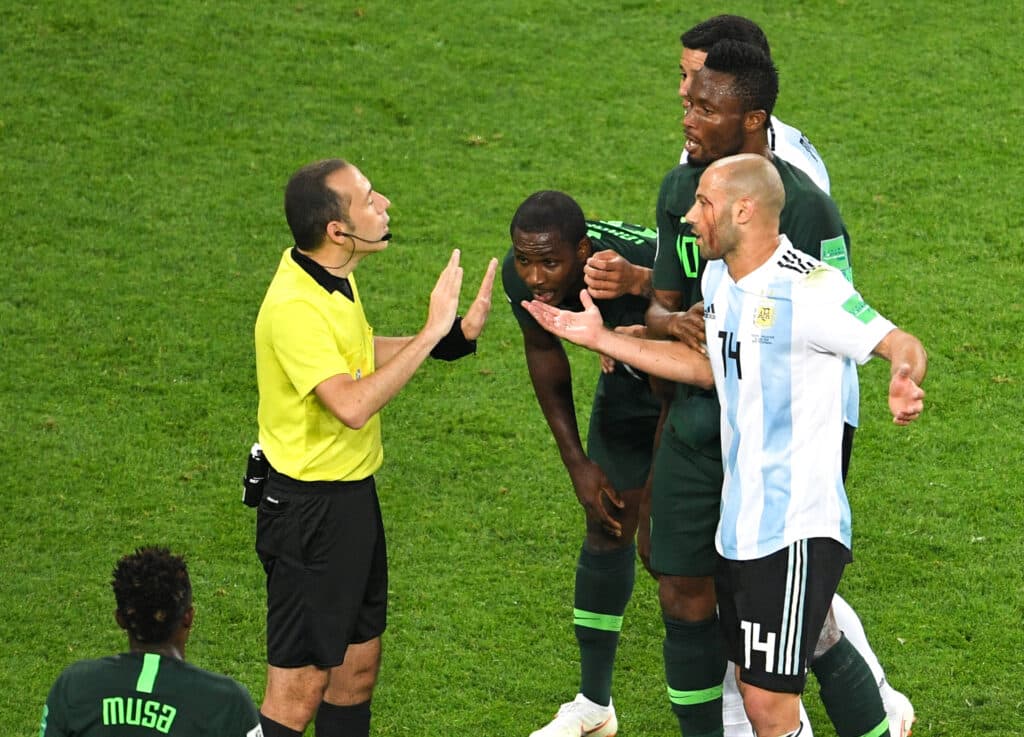
4. Tunisia 5-3 Nigeria penalty shootout loss after a 1-1 draw. (AFCON 2004 semi-final)
Nigeria were on a roll when they met Tunisia in the semi-final of AFCON 2004.
The Super Eagles had booked a place in the last four after a dramatic comeback victory against Cameroon in the quarter-final. On the other hand, hosts Tunisia were propelled by the buzz of the home fans that flooded every match venue as they made it into the semi-finals.
The match started slowly as both sides appeared reluctant to punish each other, and the first goal didn’t arrive until deep into the second half.
In the 65th minute, Nwankwo Kanu was brought down in the box by Karim Haggui, and Austin Okocha sent Ali Boumnijel the wrong way from the resulting penalty to give Nigeria the lead.
The referee's injustice came a few minutes later as the Carthage Eagles got a penalty of their own when Seyi Olofinjana brought down Ziad Jaziri in the Nigerian goal area, an incident not worthy of a penalty.
Khaled Badra converted from the spot to restore parity for Tunisia. The Super Eagles went on to lose 5-3 on penalties after both teams failed to find the winner in regulation and extra time.
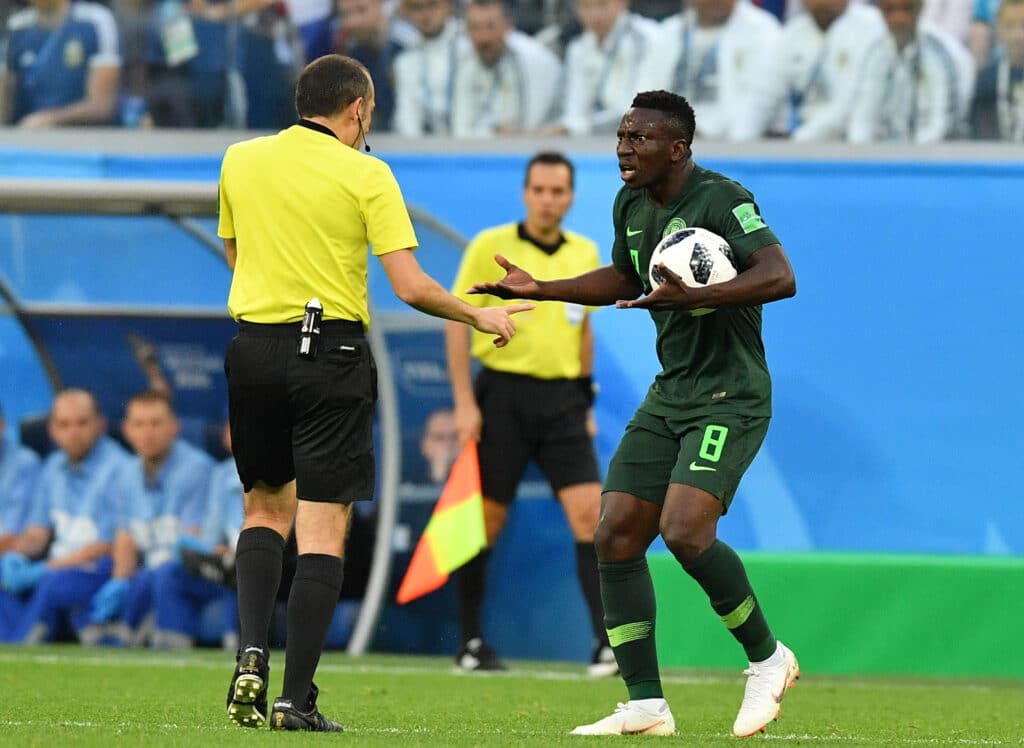
5. Nigeria 0-1 Guinea-Bissau (AFCON qualifiers)
Mama Balde scored the only goal of the game in the 29th minute. The clash took place at the Moshood Abiola Stadium in Abuja on 25 March 2023.
The encounter was characterised by unfair officiating according to Nigerians and even coach Jose Peseiro. The Portuguese tactician called out Egyptian referee Korey Alexander for failing to officiate properly.
“The referee failed to give the Guinea-Bissau player Mama Balde a red card after going in hard on Kevin Akoguma in the second half of the game,” said Peseiro.
“The referee did not give a penalty to the Super Eagles striker after he was roughly handled in the box.
“The added time given by the referee did not justify the time wasted for the treatment of the Super Eagles defender and I was expecting 10 minutes from the referee,” he added.

